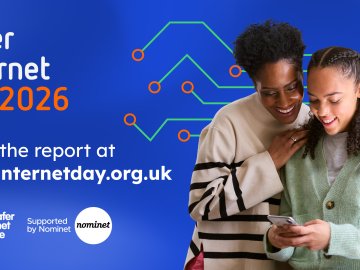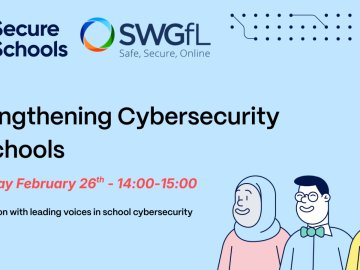Ofcom have released their annual report; Children and Parents: Media Use and Attitudes, which introduces new insights into digital literacy, attitudes and understanding among children between the ages on 3-17. Their report includes information on how parents are monitoring and managing children’s digital usage, identifying important areas where parents and schools can improve children’s digital literacy.
The report data reveals that most young people are currently accessing the internet through mobile phones (69%) and tablets (64%). This new data demonstrates how prevalent online experiences are for children, and the need to make sure safeguarding tools are in place to support them online.
Online Relationships
Throughout 2022, there was a shift in how children were interacting with each other online. As the Ofcom report identified, online conversations predominantly took place on messaging apps, with 79% of children between the ages of 3-17 using messaging apps to communicate.
The report also identified a change in how children used social media platforms last year, with Facebook seeing a drop in usage (34% vs. 40% in 2021). However, platforms such as WhatsApp saw an increase in usage, with 55% of children between the ages of 3-17 using WhatsApp, and 38% using Snapchat to interact with each other.
As the report demonstrates, social media is continuing to have a significant role in children’s growth, and 66% of children believed ‘that it helps them feel closer to their friends’. Therefore, effective strategies and tools need to be implemented to make sure children are able to interact with each other on social media in a healthy and safe way.
To help accommodate the safe use of social media, we have created a series of checklists, in partnership with some of the most popular platforms. Each one has been developed to make sure you can keep your children’s social media profiles safe and secure.
Concerns regarding how children were using social media were also highlighted in the report. Ofcom data suggested that whilst children were seeing social media in a more positive light, they were less likely to send their peers supportive messages when compared to data from 2021. Alongside this, 29% of 8–17-year-old children were reported to experience nasty or hateful interactions through social media apps.
We have always established how social media is a positive space, but unfortunately, negative interactions do occur. As part of our social media guidance, we have highlighted ways that children and young people can manage interactions within these online spaces.
Misinformation
A key finding in the report revealed that many children were unable to accurately distinguish between real and fake content online. Although children between the ages of 8-17 were less likely to believe information from social media apps compared to other sources, a third stated that they ‘believed all or most of what they saw on social media to be accurate and true’.
Ofcom’s research on misinformation supports findings from the UK Safer Internet Centre in 2021, which revealed that ‘half of young people encounter misleading content online on a daily basis’. The research also suggested that many children felt ‘annoyed, upset, sad, angry, attacked or scared’ because of misleading content.
In response to these discoveries, key resources from the UK Safer Internet Centre were included as part of the Online Media Literacy Strategy to help support teachers, carers, youth workers and librarians as young children develop the critical thinking skills to notice online misinformation.
To address all of the findings in our article and Ofcom’s report, education professionals can access our digital literacy toolkit, ProjectEVOLVE, which provides schools with curriculum resources and material; helping young people to gain essential skills in digital literacy. ProjectEVOLVE also provides resources focusing specifically on online bullying.
Contact Our Services
If you are concerned about harmful content online, you can contact Report Harmful Content. Professionals concerned about online safety issues that are impacting young people in their care, can also contact the Professionals Online Safety Helpline.
You can find out more about the Ofcom report findings here.






